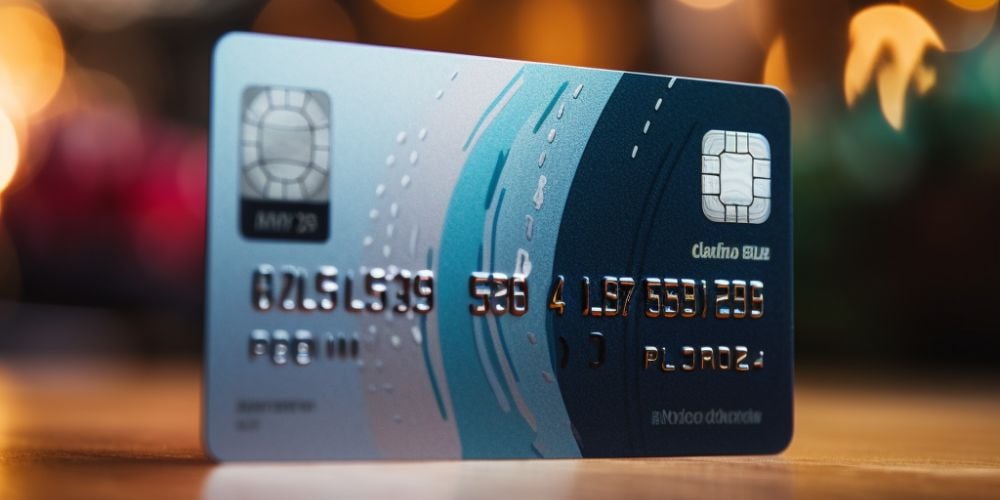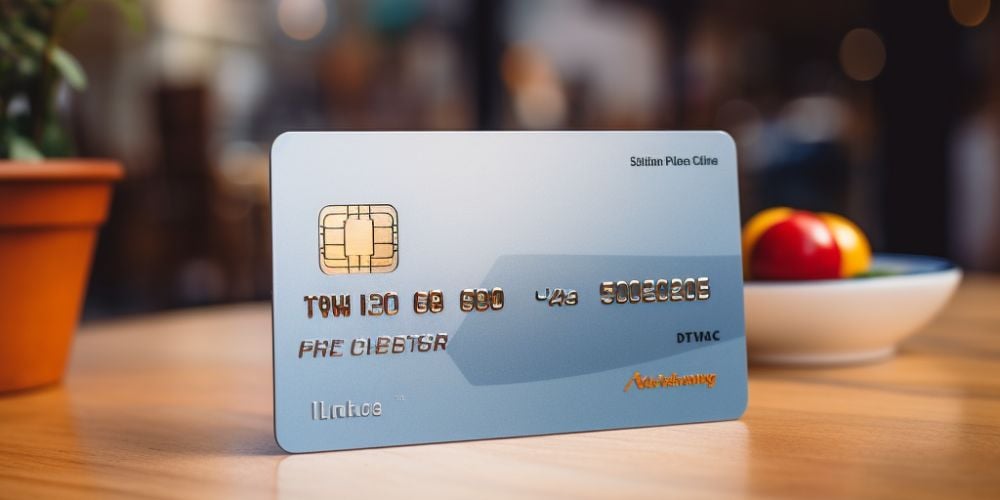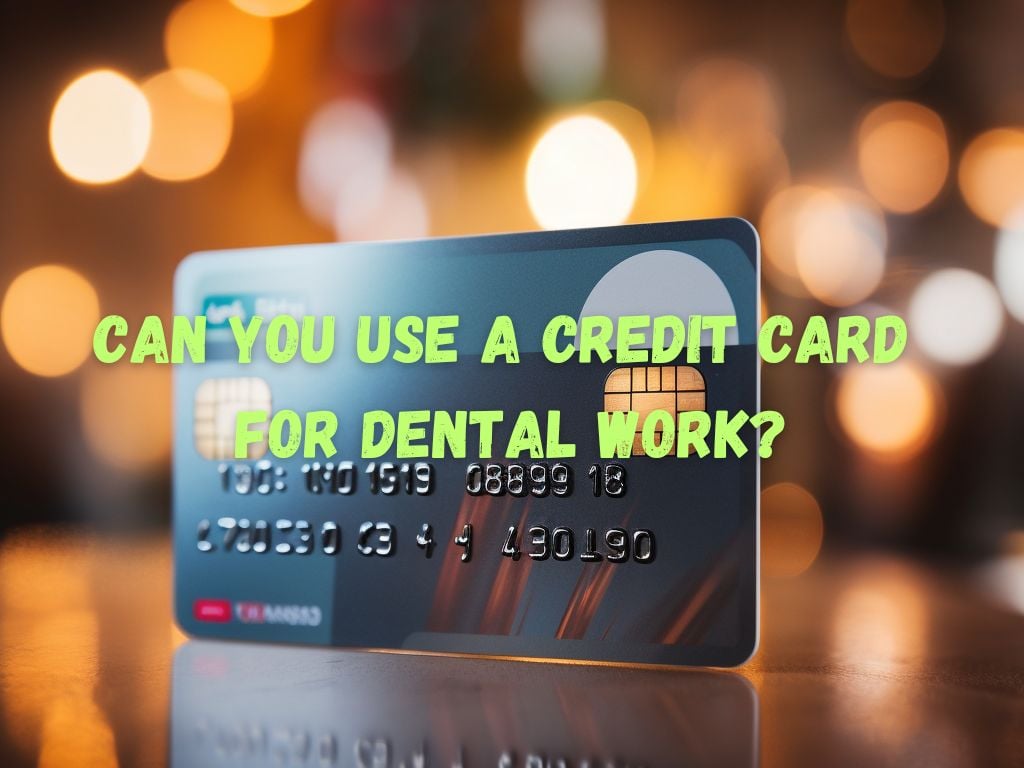Dental care is an essential aspect of maintaining overall health, but the expense of regular check-ups and procedures can add up quickly.
If you’re considering dental work, you might be wondering what your financing options are.
So, can you use a credit card for dental work?
In this article, we’ll explore the various options and considerations when it comes to using a credit card to pay for dental expenses.
Can You Use a Credit Card for Dental Work?
The short answer is yes, you can use a credit card to pay for dental work. However, there are advantages and disadvantages to using this financing option.
One of the primary advantages is the convenience of using an existing line of credit, rather than taking out another loan or using a different financing option.
You may also be able to earn rewards or cash back on your credit card purchases, which can help offset the cost of your dental work.
On the flip side, credit cards typically have high-interest rates, which could add significantly to the overall cost of your treatment.
Additionally, if you don’t pay off the balance in full, you’ll accumulate interest charges, making it harder to pay off the debt and potentially damaging your credit score.
Understanding Dental Credit Cards
Another option to finance dental work is the use of dental credit cards, which are specifically designed for dental expenses.
These cards offer promotional financing periods with little to no interest, as well as additional benefits like reduced fees and discounts on select services.
There are several dental credit cards available in the market like the CareCredit card, Citi Health Card, and Wells Fargo Health Advantage card.
While dental credit cards can be beneficial for those seeking dental care, individuals must understand the details of their credit agreements before signing up.
Remember to consider other dental financing alternatives, and always reach out to dental clinics and providers like Lavish Clinic to discuss flexible payment plans and financing options that work best for you.

Best Credit Cards for Dental Work
Some credit cards provide benefits that would be useful for dental treatment.
For instance, the Chase Freedom Unlimited gives cashback rewards on additional purchases, while the Citi Double Cash Card rewards users with cashback and offers discounts.
A few credit cards also offer travel insurance such as the Chase Sapphire Preferred card, which benefits frequent travelers looking for comprehensive coverage, including cancellations and baggage delay insurance.
However, keep in mind that the best credit card for dental work might differ depending on individual circumstances, credit score, and access to facilities.
Therefore, it is wise to compare different credit cards and weigh each of their benefits before picking one.
Other Financing Options for Dental Work
Using a credit card isn’t the only way to finance dental expenses. Dental savings plans, membership programs, in-house financing options, and personal loans are alternatives to consider.
Health savings accounts (HSAs) and flexible spending accounts (FSAs) can also be beneficial financing options to those who are qualified.
Dental savings plans and membership programs are offered by numerous dental providers and organizations.
They provide discounts and benefits on select procedures, but typically require enrollment in the program.
Personal loans can also provide financing alternatives for dental work. Individuals can apply for personal loans from their personal banks or credit unions and receive funds to pay out of pocket.
Personal loans have a fixed payment period and interest rates that may be beneficial depending on the individual’s creditworthiness.
Health savings accounts (HSAs) and flexible spending accounts (FSAs) are designed for medical expenses.
HSAs are linked to high-deductible health plans, while FSAs link to employer-sponsored healthcare plans.
The contributions of these accounts are tax-free and are credited straight to the account holder, with contributions to them used solely for health-related expenses.
Considerations for Using Credit Cards
Before using a credit card to pay for dental work, consider its implications. Firstly, it is essential to understand the interest rate and application fees charged on the card.
Pay close attention to the annual percentage rate (APR), the credit limit, and any penalties or fees that may arise with missed or delayed payments.
Secondly, using a credit card to pay for expensive dental work can negatively affect one’s credit score and utilization ratio.
It would be wise to establish a payment plan with the dental provider before beginning treatment.

Frequently Asked Questions
Can You Use a Credit Card for Dental Work with Bad Credit?
Individuals with bad credit can use credit cards to finance dental work, but the interest rate charged will be much higher than those offered to individuals with good credit.
Consequently, it is crucial to compare credit offers and ensure that the cardholder is capable of managing payments carefully.
What Is the Best Credit Card for Dental Work?
The best credit card for dental work might differ based on an individual’s personal and financial circumstances.
It’s essential to determine how frequent the dental procedures are and to find a card that offers either cashback, promotional financing, or both.
How To Pay for Dental Work With No Money?
If you don’t have the finances available, or your insurance doesn’t cover the dental work, you may be able to negotiate a payment plan with your dental provider.
Alternatively, you can look for options provided by charitable organizations that could assist.
Conclusion
Using a credit card can provide a convenient financing option if you plan to undergo dental work.
Yet, it’s critical to weigh the advantages and disadvantages before picking your financing method.
Take the time to compare credit card interest rates, fees, and promotions to decide what is best for your financial situation.


 Tags:
Tags:










